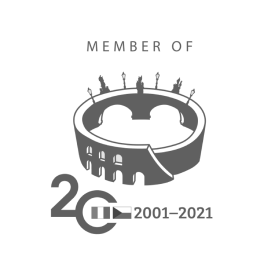
USA and the Czech Republic: Opportunities and Challenges
In recent decades, economic ties between the United States and the Czech Republic have strengthened, fueled by the Czech Republic’s integration into the European Union and its central role within Europe. Today, economic exchanges between the two countries span various sectors, including manufacturing, IT, energy, and particularly real estate. However, the recent U.S. presidential elections and shifting global dynamics are introducing both challenges and opportunities that will shape the future of this economic relationship.
The United States ranks among the top foreign investors in the Czech Republic, with a significant presence in the manufacturing and technology sectors. According to recent reports, many American multinational corporations have established development and production centers in the Czech Republic, attracted by the competitive costs of skilled labor and the country’s strategic location. This has supported the growth of local businesses and increased Czech exports to the American market.
Current trends indicate that real estate is one of the areas with the highest potential for expansion for American investors. In particular, Prague draws both commercial and residential real estate investments due to a growing demand for modern office spaces and luxury housing. Recent currency fluctuations – with a strong dollar relative to the Czech koruna – are making real estate investments more affordable for Americans, leading to an uptick in U.S. investments in Czech properties.
Manufacturing is one of the primary beneficiaries of American investment, as many U.S. companies view the Czech Republic as a strategic hub for production and distribution within Europe. With its central location and competitive labor costs, the Czech Republic attracts U.S. automotive companies, like General Motors, that utilize the skilled workforce and advanced infrastructure to produce automotive components and assemble vehicles for European and global markets.
The Czech Republic also has a longstanding tradition in the automotive industry, home to major producers such as Škoda. While now part of the Volkswagen Group, Škoda remains a significant force in both domestic and international markets. American investments help integrate technological innovations, improving production quality and increasing efficiency – both critical for maintaining competitiveness in the global market.
Despite the investment opportunities, economic relations between the United States and the Czech Republic could face pressure from protectionist U.S. economic policies. During his first term, President Trump showed a tendency to favor unilateral trade measures to protect the U.S. economy, imposing tariffs on imports from various countries, including European ones. If Trump were to implement similar measures, the Czech Republic could experience a decline in exports to the United States, particularly in the automotive and manufacturing sectors.
Despite these challenges, interest in foreign direct investment (FDI) remains strong, as the Czech market offers qualified labor and competitive costs. However, to maintain a steady flow of investments, it will be crucial for the Czech government to strengthen policies that attract American investors, offering tax incentives and further simplifying the regulatory framework.
Another promising area for economic relations between the two countries is energy, particularly renewable energy and green technologies. The Czech Republic is working to diversify its energy sources and adopt more sustainable technologies, goals that align well with American innovations in the energy sector. Politically, a victory for Trump could influence public opinion in both Europe and the Czech Republic. According to a recent survey cited by Expats.cz, about 70% of Czechs would have preferred Kamala Harris as president over Trump. This reflects a widespread perception in Europe, where Trump is viewed as a polarizing figure, especially regarding issues like climate change and foreign policy. Skepticism about climate change and a foreign policy focused on national interests could lead European countries, including the Czech Republic, to strengthen intra-EU ties to mitigate potential pressure from the United States.
Regardless of the policies Trump may pursue, U.S. companies specializing in renewable energy and sustainability may find a growing market in the Czech Republic, partly thanks to European funds that support the green transition.
Sources: https://www.expats.cz/czech-news/article/czech-crown-drops-against-dollar-amid-trump-s-lead-in-u-s-presidential-race ; https://www.expats.cz/czech-news/article/a-trump-win-would-significantly-weaken-the-czech-crown-analysts-say ; https://www.expats.cz/czech-news/article/trump-vs-harris-analysts-weigh-in-on-who-s-better-for-czechia-s-economy; https://www.expats.cz/czech-news/article/poll-seven-in-10-czechs-would-vote-for-harris-instead-of-trump ;https://www.expats.cz/czech-news/article/trump-vs-harris-czech-political-analysts-weigh-in-on-us-presidential-debate; https://www.seznamzpravy.cz/clanek/audio-podcast-ptam-se-ja-volby-usa-2024-vysledky-zive-26384




